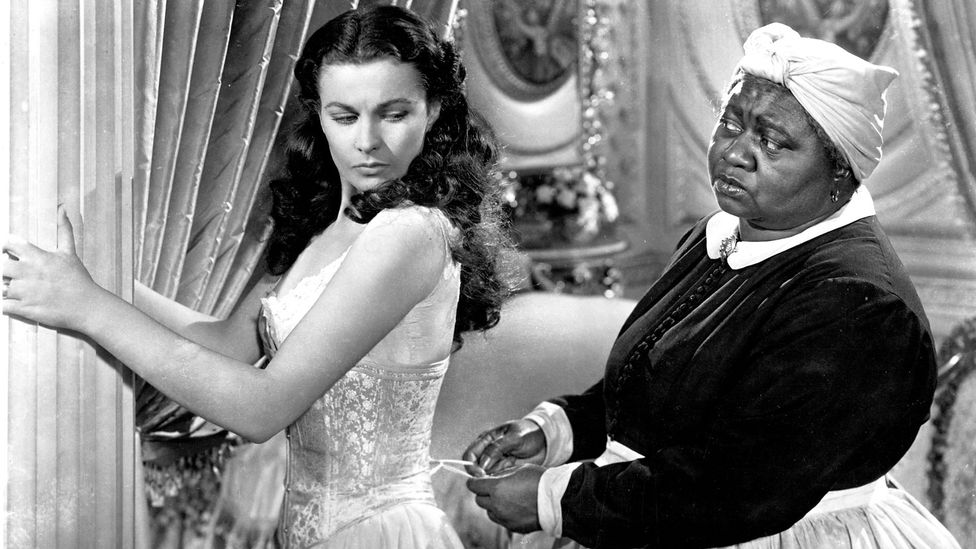The intersection of race and gender has engendered a plethora of stereotypes that have infiltrated societal consciousness, particularly within the context of African American women. Two of the most insidious figures in this discourse are the ‘Mammy’ and ‘Jezebel’ archetypes, which have perpetuated a pernicious form of misogynoir. Misogynoir, a term that encapsulates the unique discrimination faced by Black women, is significantly compounded by these stereotypes, which serve to dehumanize and marginalize. The Bahá’í teachings, with their profound emphasis on equality, justice, and the eradication of prejudice, offer a compelling framework for understanding and countering these damaging societal constructs.
The ‘Mammy’ archetype is emblematic of the historical portrayals of Black women as devoted caretakers, nurturing figures who exist solely for the benefit of others—most notably, the white family they serve. This stereotype emerges from the antebellum South, where enslaved women were often tasked with rearing the children of their enslavers while neglecting their own. This portrayal, characterized by an unyielding loyalty and an absence of personal desire, functions to render Black women’s lived experiences invisible. Mammy embodies unconditional servitude, often obscuring the multifaceted identities and aspirations of Black women, thus reinforcing the notion that their worth is intrinsically tied to their ability to serve white families.
In contrast, the ‘Jezebel’ archetype illustrates the hypersexualization of Black women—an embodiment of sexual promiscuity and moral depravity. This stereotype presents Black women as lascivious figures, devoid of virtue and agency. The Jezebel archetype emerged as a means to rationalize the sexual exploitation of Black women, particularly during the era of slavery and beyond. By framing them as inherently promiscuous, society absolves itself of responsibility for their victimization. Both the Mammy and Jezebel figures serve to enforce rigid boundaries around femininity and morality while delegitimizing Black women’s autonomy over their own bodies.
Within the framework of Bahá’í teachings, it becomes evident that both stereotypes are antithetical to the principles of unity and equality espoused by the Faith. A core tenet of Bahá’í belief is the inherent dignity and worth of every individual, irrespective of gender or race. The teachings of Bahá’u’lláh and Abdu’l-Bahá emphasize the importance of recognizing and celebrating the unique qualities of every person, thus challenging the reductionist views encapsulated in the Mammy and Jezebel stereotypes.
Critical examination of these stereotypes through the lens of Bahá’í philosophy reveals several actionable pathways toward dismantling their influence. The first tenet involves fostering an understanding of the historical contexts from which these archetypes arose. Educating individuals on the legacies of slavery and colonialism can create a deeper awareness of how such stereotypes persist in contemporary discourse.
Moreover, the Bahá’í principle of gender equality necessitates an active challenge to the gendered dimensions of these stereotypes. The Faith advocates for the equal participation of men and women in all spheres of life. Encouraging both genders to partake in negotiations of power and influence provides a proactive approach to dismantling the systemic structures that perpetuate misogynoir.
Another crucial aspect is the promotion of positive representations of Black women in media and literature. The Bahá’í teachings emphasize the significance of art and culture as means to communicate transformative ideas. Supporting diverse narratives that highlight the resilience, intelligence, and agency of Black women can serve to counteract the deleterious effects of the Mammy and Jezebel stereotypes. Highlighting lived experiences, successes, and authentic stories of Black women fosters a more nuanced understanding of their identities.
In addition, the Bahá’í community encourages dialogues that interrogate and challenge racial prejudice and misogyny. These discussions could be framed within the context of service and consultation, where individuals come together to create inclusive spaces that honor the contributions and struggles of marginalized groups. By prioritizing empathy and understanding, such dialogues can help to dismantle entrenched stereotypes and cultivate a culture of respect.
Lastly, the principles of service and social action within the Bahá’í framework encourage individuals to engage in community-building activities that address social inequalities. This may involve volunteering for organizations that advocate for the rights of women of color, participating in campaigns seeking to eliminate systemic racism, or contributing to educational initiatives aimed at empowering marginalized communities. Such actions not only align with the Bahá’í commitment to justice but also serve to redress the balance by combating the misogynoir that the Mammy and Jezebel stereotypes perpetuate.
In conclusion, the Mammy and Jezebel archetypes epitomize the stereotypes that fuel misogynoir, necessitating a profound and compassionate response grounded in the principles of Bahá’í teachings. By rejecting these reductive portrayals, advocating for equality, fostering positive representations, engaging in constructive dialogue, and committing to social action, individuals can contribute to a ripple effect of change that uplifts and honors the complexity of Black women’s identities. The Bahá’í Faith, with its emphasis on unity and justice, provides a robust framework for addressing these enduring issues and paving the way toward a more equitable and just society for all.
